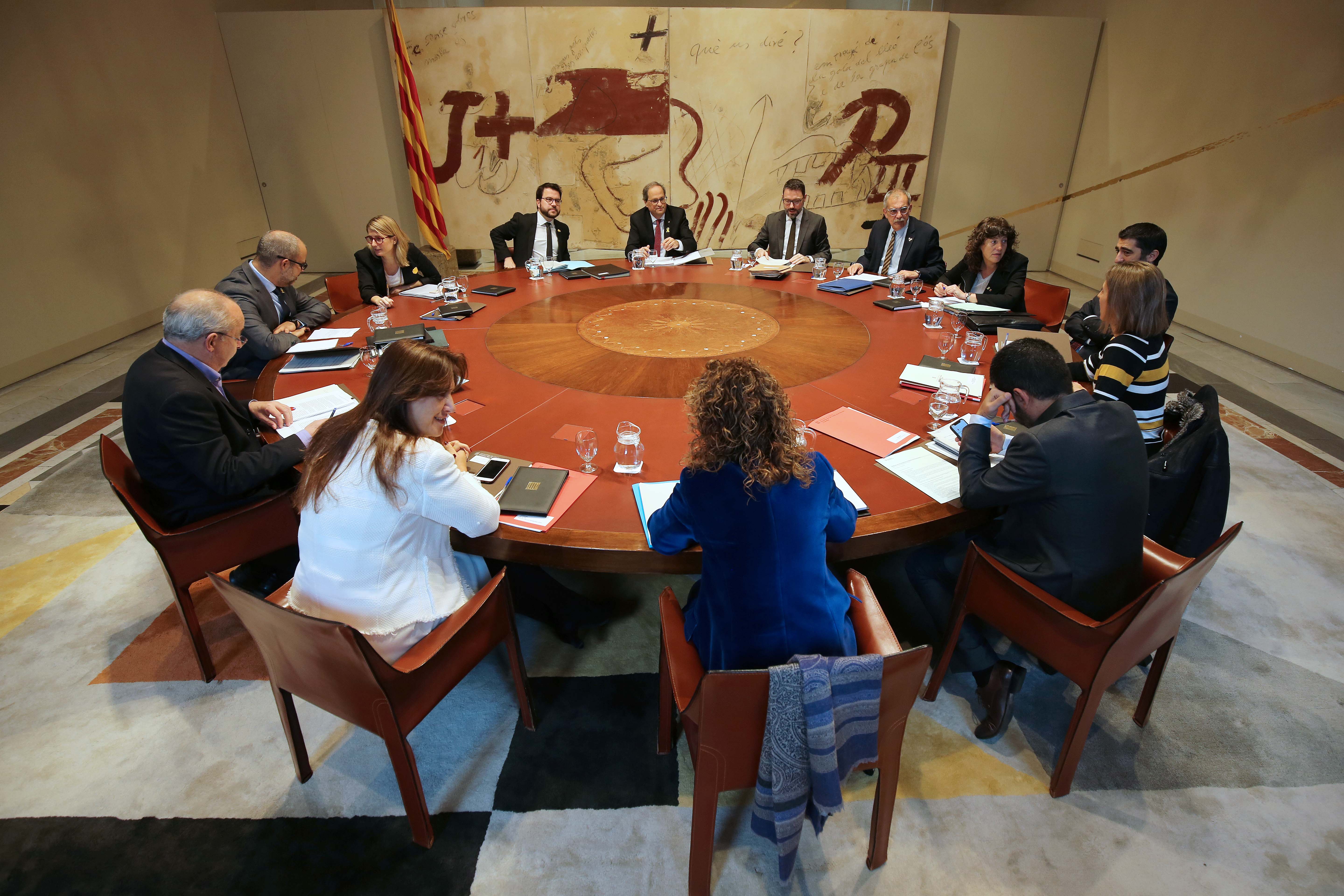"The economic effect of the 155 on the Catalan government's budget, whether through losses, blockages or delays, is greater than 1.8 billion euros [£1.6 billion; $2.0 billion]". That's one of the conclusions of the Catalan government's report into the suspension of its self-government last year by Mariano Rajoy's central government. 155 refers to the article of the Spanish Constitution used by Madrid to carry out the intervention.
The report, entitled The effects of the intervention by the state's general administration through the application of article 155 of the Constitution on the Catalan government, concludes that it was "a broad, full-fledged intervention of the Catalan government and it negatively affected all areas of the institution".
The direct impact was more than 130 million euros (£110; $150 million); the paralysing of subsidies has affected more than a thousand social bodies; approval was prevented for social housing worth 140 million and the Mossos, the Catalan police force, couldn't access the money in the "reserved funds" to finance the fight against terrorism and organised crime. A total of 234 people, including public officials and temporary staff, were fired, including staff abroad.
According to the 155 commissioner, Pau Villòria, the application of article 155 was a failure: "if what they aimed to do was to resolve the conflict through coercion, it didn't turn out well for them". "It was an instrument perfectly planned by the state to suspend Catalonia's self-government. There were other paths, like negotiation (which the state's government never contemplated), resources or the courts which the state didn't want to use and finally the coercive imposition of one party on the other", the commissioner said in a press conference today.
Villòria warned that the powers article 155 grants cannot be unlimited, "as it seems the state's government wanted, and that meant the intervention didn't fit the needs or proportionality".
The Catalan government has appeared in the appeals made by Podemos and the Catalan Parliament and is studying the possibility of recouping some of the effects of the suspension, although it admits that will be complicated, given that the suspension itself prevented such actions being undertaken at the relevant times.
#Comissionat @pauvilloria: Els col·lectius socials més vulnerables són el que més han patit l’aplicació del 155. Més d’un miler d’entitats de l’àmbit socials s’han vist afectades per la paralització de diverses línies de subvencions pic.twitter.com/RjyAl3IONN
— Govern. Generalitat (@govern) 13 de novembre de 2018
The report's conclusions highlight that the Catalan government "saw its ability to defend its interests in different controversies and jurisdictions seriously limited, especially before the Constitutional Court". That prevented it from appealing actions, like the application of article 155 itself, approved by the Senate, but also limited its ability to act in cases like the defence of the image rights of the teachers accused of a hate crime at IES El Palau school in Sant Andreu de la Barca and at Seu d'Urgell or the defence of the Sixena artifacts.

